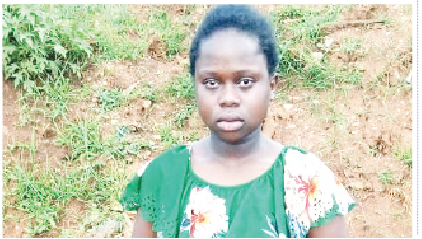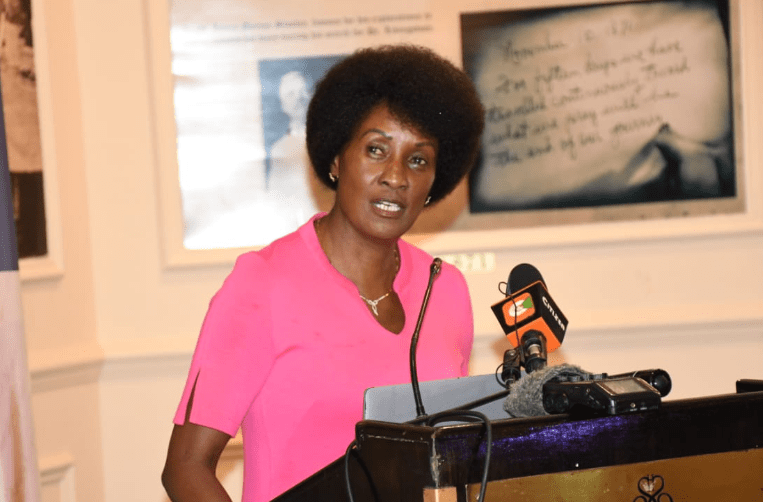Needy students dejected after failing to join secondary school due to lack of fees

Every time Brigid Chepkoech,15, steps out of their house in Kakamega County, she elicits curious looks and bugging questions of neighbours and friends asking when she would be reporting to school. Three weeks have lapsed since her classmates joined Form One and her hope of joining Kipsigis Girls’ High School, a national school in Kericho County where she was called for admission is fading with each passing day.
The first born of a single mother, Brigid scored 396 marks in the 2021 Kenya Certificate of Primary Education (KCPE) exam as a candidate at Kakamega Primary School, but cannot afford Sh45,000 required as annual boarding fees at the school. She cannot even afford the school uniform. She is stuck.
Her mother Audrey Otula, 33 lost her job as a petrol pump attendant at Shikoti market in Kakamega central sub-county, therefore cannot fully support her children beyond providing food for them. “I have two sons and another daughter who are living with a friend. I depend on casual jobs, such as washing clothes for my neighbours to earn an income. We applied for The Wings to Fly and Elimu scholarships in vain…I feel I’m headed to the cliff,” she told Scholar.
Brigid is among thousands of top KCPE graduates from poor backgrounds who are on the verge of dropping out of school for lack of school fees in spite of the government 100 per cent primary to secondary transition policy.
Even as the Ministry of Education through the provincial administration engaged an overdrive gear to mop all KCPE candidates to join secondary school, it has emerged that tens of bright students from extremely poor backgrounds are yet to report to school, even as schools broke for half term last week.
The spectacle of young boys and girls roaming village market centres and casual labour markets in search of jobs underscores the challenge the 100 per cent transition policy is facing. “So, after joining Form One in a local day school, who pays for my lunches.” A KCPE graduate in Shibuli posed when asked why she was still at home.
Covid-19 precipitated losses in jobs and earning has also been cited for the harsh economic situation that pushed many households to the verge of deprivation to the extent they can no longer afford meals and school fees. However, while poverty is cited as the main impediment to the 100 per cent transition policy, the society feels men have abdicated their family headship and responsibility role to women
In Gatundu South, Kiambu County, for instance, local leaders and women blame drunkenness among men as one of the contributing factors to the sorry state of affairs and called for prompt intervention from the authorities.
“Women have been handed the responsibilities of fending for the family…feeding, clothing as their husbands enjoy idleness and local brews,” one elder said.
Single mother
Emily Ngina, a divorced single mother of two said at one time she was on the verge of committing suicide when her daughter who was admitted to secondary school could not report for lack of fees.
“I felt that there was no point for me to be alive if I cannot take my child to secondary school,” said Ngina, who quit her marriage six years ago to protest her husband’s plunge into alcoholism.
Leaders and parents interviewed separately faulted the government on its 100 percent transition policy on education saying apart from being brutish, it fails to address pertinent concerns that should oil a learning environment.
Kung’u Kibathi, an aspiring Member of Parliament in Gatundu South constituency last week stepped in to aid bright students from poor backgrounds to join secondary schools by giving start-up bursary cheques, and urged the government to ensure that all children access education, irrespective of whether their parents are financially handicapped.
Kibathi says local and national leaders must join hands to support extreme cases to ensure that children acquire education to transform the society. “Most parents have lost hope in life and so are their children who continue to roam in the villages as their peers study,” he said.
James Gathegu, a parent in a local school in Kakamega county says if the billions of public resources’ meant for bursaries were deployed for the intended purpose, no child would be deprived of education.
The African Canadian Education society (ACCES) Kenya programme officer Anthony Mutevani agrees that government bursaries have been abused by the administrators through greed and underfunding. He said, a huge percentage of the education bursary budget, every year benefits undeserving cases.
Equity Bank’s Wings To Fly, Government Elimu scholarship administered by Equity bank foundation, Kenya commercial bank, Jomo Kenyatta foundation Co-operative bank and Canadian Harambee Education society (CHES) have supported the 100 per cent transition through secondary school scholarship programmes.
The National Government Constituency Development Fund (NG-CDF) and county governments have also created schemes for bursaries to Secondary and college students. However, these bursaries are prone to abuse as they are not synchronised.
Mutevani observes. “A student can easily benefit from both the county bursary as well as CDF bursary at the same time or easily get away with bursaries from two different CDF kitties at one single cycle.”
He observes, “NG-CDF law is clear that 30 per cent of the annual NG-CDF allocation is meant for bursary. This is about Sh10 billion of the Sh31 billion disbursed to the 290 constituencies annually as NG-CDF.
“What we’ve seen in constituencies is CDF committees committing as little as 15 per cent of the Sh130 million annual CDF allocation to bursary kitty .The results are allocations of Sh4,000 to students; an amount that can hardly keep a student in a day school for one term.”
Additional reporting by Mathew Ndung’u
Last week, Education Cabinet Secretary George Magoha warned school heads against turning away learners who report to school without school fees. He insisted that no day school student should be kept out of class as the government had paid for their tuition expenses.











